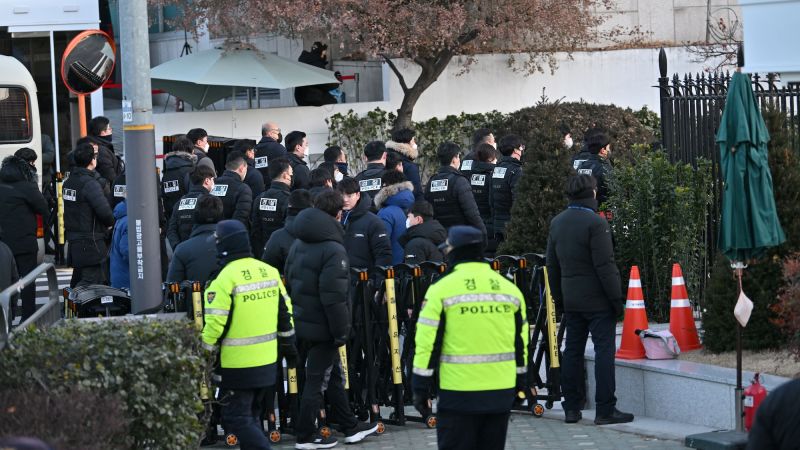South Korean Investigators Halt Arrest of President Yoon Suk Yeol Amid Standoff
Seoul, South Korea – In a dramatic showdown, South Korean investigators suspended their efforts to arrest President Yoon Suk Yeol on Friday after a standoff that lasted for several hours. The move follows Yoon’s short-lived martial law declaration and his refusal to answer summonses by investigators, who are questioning him over accusations of leading an insurrection, a crime punishable by life imprisonment or even death.
Around 80 police and investigators had arrived at the presidential compound in the early morning to take Yoon into custody for questioning, but were blocked by a “human wall” of around 200 soldiers and members of the presidential security detail. The standoff had escalated into altercations of varying intensity.
The investigators were forced to call off the arrest warrant enforcement, citing the safety of the people on the ground. The warrant, which is valid until January 6, remains in effect and could be extended. The investigators expressed deep regret at the suspect’s attitude of not following the process by law.
The standoff has resulted in a heavy atmosphere in the streets around the compound, with police flanking streets near Yoon’s residence and hundreds of supporters gathering to show their backing for the president. Yoon’s backers, who include conservatives and die-hard supporters, claim that the actions being taken against him are contrary to South Korean law.
The crisis began last month when Yoon declared martial law, which was met with widespread public backlash and opposition from lawmakers. His declaration was rescinded just six hours later. Since then, the country has been in political disarray, with parliament also voting to impeach its prime minister and acting president.
The investigation into Yoon’s alleged insurrection includes allegations that he ordered troops to the National Assembly to block lawmakers from blocking the martial law order. The crisis has sparked allegations of abuse of power and served as a flashpoint for protests and demonstrations.

